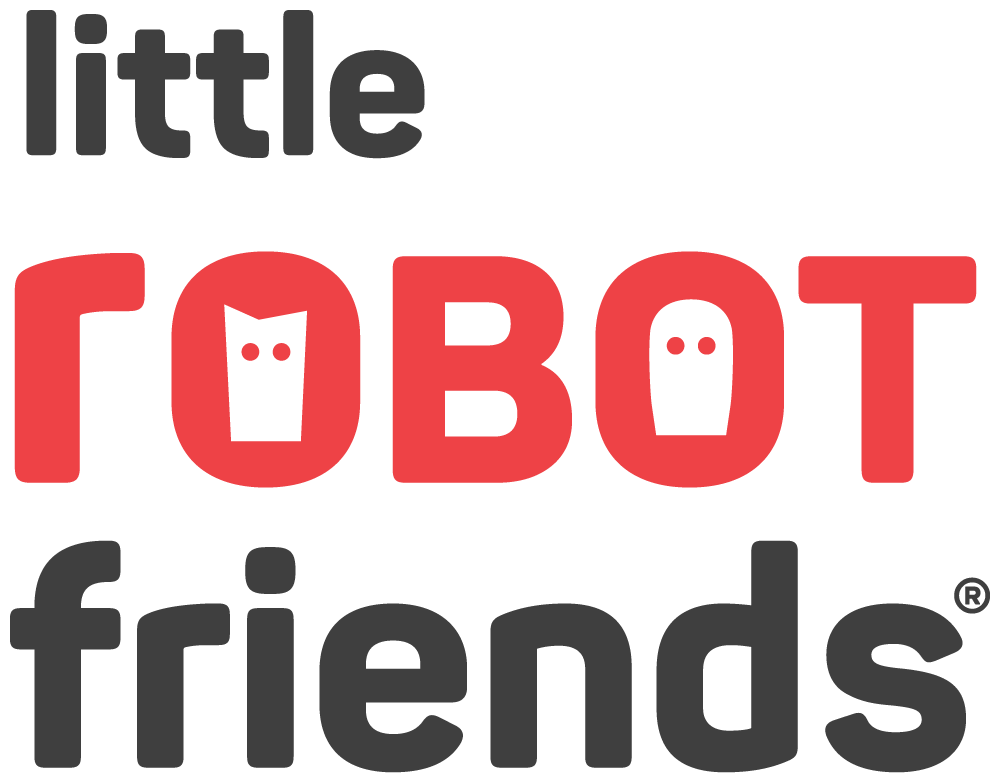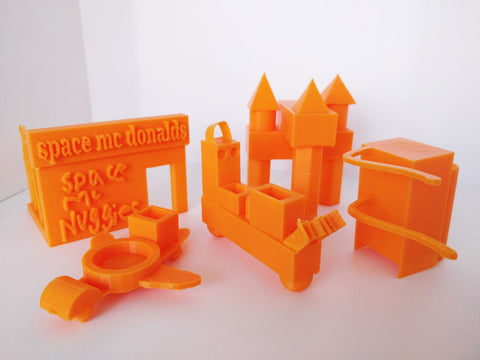In a variety of settings and through numerous roles, I’ve been committed to kids and their education for over a decade but 2020 has landed me in some science fiction vignette: virtual learning. Kids click a little blue hand icon to signal a query or share a comment; task completion is communicated by way of the beloved green checkmark; and when the teacher speaks, hers is the only voice you hear. Six months ago, I might have called this some kind of a dream scenario (simply push a button to mute disruptive talking? Ha!). Truth is, I miss the energy, I miss the noise, the odd outburst, I miss being able to ignore a kid while she loudly whisper-asks someone next to her how to type an upper-case letter. I could go on.

Six months ago, I might have called this some kind of a dream scenario (simply push a button to mute disruptive talking? Ha!).
So, yes, there’s a lot I miss. But a month into Little Robot Friends’ online summer camps, I can also appreciate the positives. Back in the good ‘ol days of in-person learning, if a coder was struggling, I would rush over and show them how to do the thing. Now, we have to figure it all out together and ultimately, it’s the coder who fixes the issue. We might not be able to cover as much ground during a typical coding session but I am seeing our coders become more independent and better problem solvers. We’re all getting better at using our words. Coders need to effectively describe their issues and we need to listen to them carefully, and ask the right questions. Our coders are getting better at articulating their needs, not only are they learning the concepts “event” and “loop” but they’re using the vocabulary to communicate. They’re doing it naturally and with ease. It’s not uncommon for a coder to start explaining their issue and mid-sentence say, “Oh, never mind! I know what I did!” Be still my heart, this is the dream scenario!

Our coders are getting better at articulating their needs, not only are they learning the concepts “event” and “loop” but they’re using the vocabulary to communicate.
Our World Builders camp charges coders with the perfectly aligned task of problem solving through creative invention. They are presented with a message from a group of Little Robot Friends who are preparing another planet for humans; the robots have encountered some problems and are turning to young people - who clearly have the best, most creative ideas - to help solve their problems. We’ve run this camp twice now and both times, our cohorts have enthusiastically engaged with the content.
We take coders through the design process, starting with empathy. And oh, what stories they come up with! One camper coded an animation telling the story of Charlie Recharge, a robot in dire need of a way to charge their battery but urged by Spikey, another robot friend, to find solutions that won’t pollute! Another robot was worried about the use of resources and the cost of building a satellite. After a solid brainstorming session, campers settle on an idea to solve their selected robot’s problem. After being briefly introduced to 3D modeling, campers exceeded our expectations as we watched them craft their prototypes. Haily Hopper, a robot who was worried about transport, got a banana-shaped hoverboard and mechanical puppies to carry her groceries because, “If you’re going to have a hoverboard, why not make it funny? And puppies make everyone happy.”

Now is the time we need to be listening to new ideas, considering different ways forward.
I was excited back in February when the idea for a world builders camp was first pitched. This optimist is a sucker for anything that imagines a better world. Of course, the content had to be reimagined and adjusted when we made the hard decision to deliver our camps virtually. The essence remained, though. Now is the time we need to be listening to new ideas, considering different ways forward. We know this. But I think kids always know this … at least while they’re kids. World Builders is a camp that explicitly asks them to imagine a new world, one where their ideas are sought and solutions are possible.
***
This blog post is written by Michelle Mismash. She is our Summer Camp educator and has been a teacher for over 12 years. Michelle has lived all over the place, teaching everything from phonics to woodworking. When she's not making friends with little robots, she uses her OCT credentials to teach for the Toronto District School Board. Michelle also has three cats and too many plants to count!
